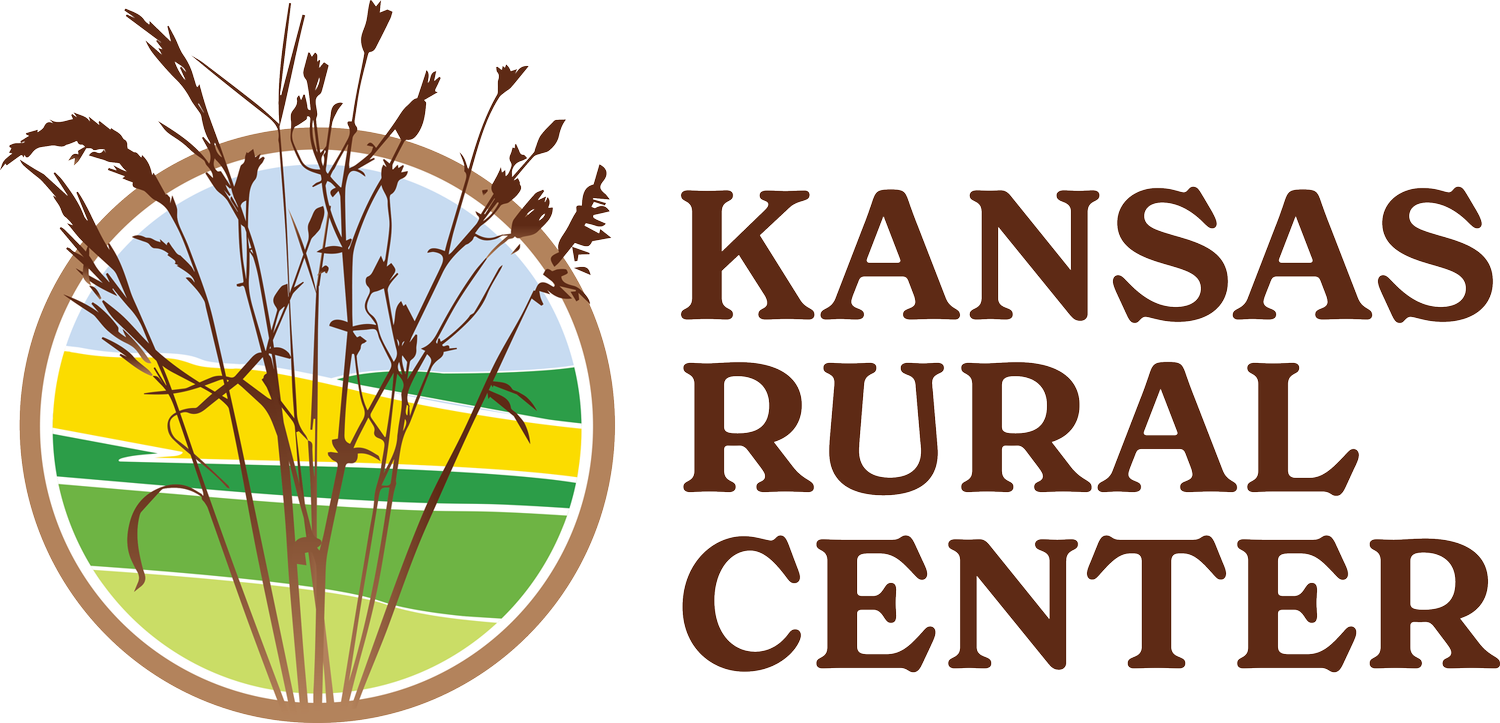Board Member Spotlight
Karen Willey - Outdoorswoman Becomes
Scientist, Farmer, and Advocate
I’m proud to support the Kansas Rural Center as a donor and board member since 2016. Currently, I am also serving as the 2022-2023 Fellow at the Dole Institute of Politics on behalf of the KRC, fulfilling a shared desire to host conversations about environmental issues impacting Kansas. There are few organizations whose mission aligns so clearly with my own to support equitable, sustainable communities in Kansas with a focus on people and the land.
I was a quiet kid who thrived by exploring pockets of wild spaces near my home in all the places my family lived across the midwest and Germany. I developed a passion for hiking and camping and logged hundreds of backpacking miles in a dozen states. Farming was always a dream, but it seemed unattainable for someone who wasn’t born into it. I chose to study at KU to connect with some deep family roots in Douglas County and stayed.
After a BA in Environmental Studies, I dug into soils research. Permission from gracious landowners allowed me to access soil sampling sites across northwest Kansas and southwest Nebraska as part of my PhD research in Geography. I was struck by the beauty of Kansas working lands and the awesome responsibility of private citizens for stewarding the ecosystems under their care.
My own path into farming was launched when our home was purchased by eminent domain for a highway project. We bought our farm under a cover of snow and didn’t know what we had until thistles and fescue greeted us in the spring. It’s been gratifying to see the pastures recover with rest, fire, and rotational grazing. Now I raise grassfed beef cattle and a few hair sheep, though over the last fifteen years I’ve raised a milk cow, milk goats, guinea hogs, chickens, ducks, and turkeys.
Beyond the farm, I have operated two successful businesses including an engineering and manufacturing business, Bluestem Machine Works, Inc., with my husband and partner Scott Eudaly and now work with a local nonprofit consulting group, Futureful.
Just recently, I also launched a new land link site, FarmTender.us with a friend, Brad Bradley, to help connect new and expanding regenerative farmers with ecologically minded land owners. Our task is to expand the number and diversity of farmers and boost soil health practices across the state. Kansas has an incredible capacity to deploy soil health practices and boost the nutritional and ecological value of our food. Within the uncertainty of a climate change future, soil health is a powerful ally.
Last year I stepped into a new role as a Douglas County Commissioner with the task of weighing competing community values for ecological protection, the need for new and affordable housing, local food production, and the imperative to decarbonize our energy systems. These lead to frank conversations about stewarding our local and global environments and the people who depend on them.
Twice daily chores outside in any weather seems to ground me. Even after a late commission meeting, I change into my coveralls and button up the livestock for the night. It helps me remember that nature is endlessly creative and resilient. It gives me hope to see that ecosystems always strive to regenerate and our farms and communities can do the same.
Karen Willey is a PhD scientist and 3rd District Douglas County Commissioner who manages a 115 acre farm in eastern Kansas raising grass-fed beef cattle while restoring native pasture. She also has experience in no-till crops, cover crops, sheep, goats, pigs, chickens, turkeys and bees. As an entrepreneur, Karen has created and led a variety of successful businesses including an engineering and manufacturing business, Bluestem Machine Works, Inc., with her husband and business partner Scott Eudaly. Recently Karen and friend Brad Bradley have created FarmTender, a land-linking website seeking to connect regenerative farmers with eco-friendly landowners.
Links from the article
Futureful: https://befutureful.com
FarmTender: farmtender.us


